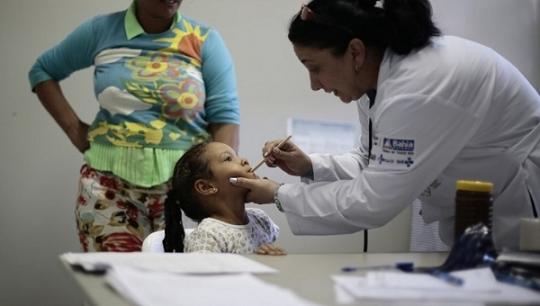2017 State Budget settlement report
Granma | Thursday, 9 August 2018 | Click here for original article

51% of all expenses were for public health, social assistance, and education
The state budget touches all Cubans: when we go to school at any level; when we visit the doctor, regardless of the severity of our health problem; when we retire and receive social security benefits; and, of course, when we pay taxes and fees.
Presented here is information from the settlement report approved by deputies to the National Assembly of People’s Power Ninth Legislature, during its first period of ordinary sessions as part of the accountability process regarding the use of the people’s resources as established in Law 122.
FACTS & FIGURES:
The 2017 budget’s execution was described as positive:
• Projected income was surpassed by 3%, reaching a total greater than 55.6 billion pesos.
• Expenditures totaled 63,906,000 pesos, 98% of the amount projected
• Only 86% of the credit in sovereign bonds approved was utilized, reducing the debt projected by 1.38 billion pesos, thus providing an additional source of credit in 2018
• Taxes supplied 74% of all income
• The state enterprise sector continues to be the greatest contributor, with 86% of the total, followed by non-state economic actors which contributed 11%
• The budget deficit, at 8,284,000,000 pesos, was less than the amount approved and within limits established by law
USE OF BUDGETED FUNDS:
Social sphere: 51% of all expenses were for public health, social assistance, and education
More than 10.7 billion pesos were spent to cover the costs of 251 million visits to doctors and dentists’ offices, among other services. Infant mortality reached its lowest level ever: 4 per every 1,000 live births. Resources needed for vector control efforts
Assistance was provided to 185,000 persons in rest homes for older adults and centers for persons with disabilities and at-risk pregnant women.
More than 62,000 older adults and mothers were served
Some 1.74 million students continued their educational careers in more than 10,000 schools at the preschool, primary, and secondary level.
The country’s higher education system maintained and staffed 50 institutions serving 225,000 students
More than nine million cultural activities were funded. Television broadcast 67,600,000 hours of programming and radio 530,000, with an increase in coverage of sporting events and educational programs, and the establishment of new stations
Farmers received 159 million pesos in additional benefits as a result of the policy established to finance 50% of insurance policy premiums and interest on loans associated with the drought
The holding of national events and participation in international competitions, marathons, school tournaments, and other healthy recreational activities for the population were financed with state budget funds
More than 5.9 billion pesos were spent to provide benefits to 670,000 pensioners and women on maternity leave. The State Budget covered 14% of this expense.
More than a billion pesos were awarded to more than 21,000 low-income persons who requested subsidies to repair or build homes.
More than 46,000 conservation and repair efforts were financially supported, with work done on 101,000 houses, 11,000 apartments in multifamily buildings, and 117 group accommodations.
Some 60 million pesos were spent on 173 projects at 23 scientific research centers.
Programs associated with the state plan to confront climate change, Tarea Vida, were funded.
More than 447 million pesos were spent on the repair and construction of aqueducts, sewers, and drainage systems, among other projects, to provide better service for more than 700,000 persons
Only 90% of funds allocated for the country’s water diversion project were spent, because planned imports of equipment were not completed.
Income from the Local Development taxes reached 525 million pesos, and was devoted to the rehabilitation of water distribution systems, public and enterprise facilities, and neighborhood revitalization, among other projects
Transportation received 208 million pesos, 90 million to repair road damage caused by extreme weather events
Funds made available directly to municipalities and provinces represented 35% of total expenditures.
More than 14 billion pesos were awarded to state enterprises which generate exports or produce goods to replace imports.
CONDITIONS THAT NEGATIVELY IMPACTED THE BUDGET’S EXECUTION
- Credit limitations
- Insufficient availability of fuel
- Economic impact of severe three-year drought
- Effects of the U.S. economic, commercial, financial, blockade of Cuba
- Damage caused in 12 provinces by Hurricane Irma and later periods of heavy rainfall
SOURCE: Report by Minister of Finances and Prices Lina Pedraza






